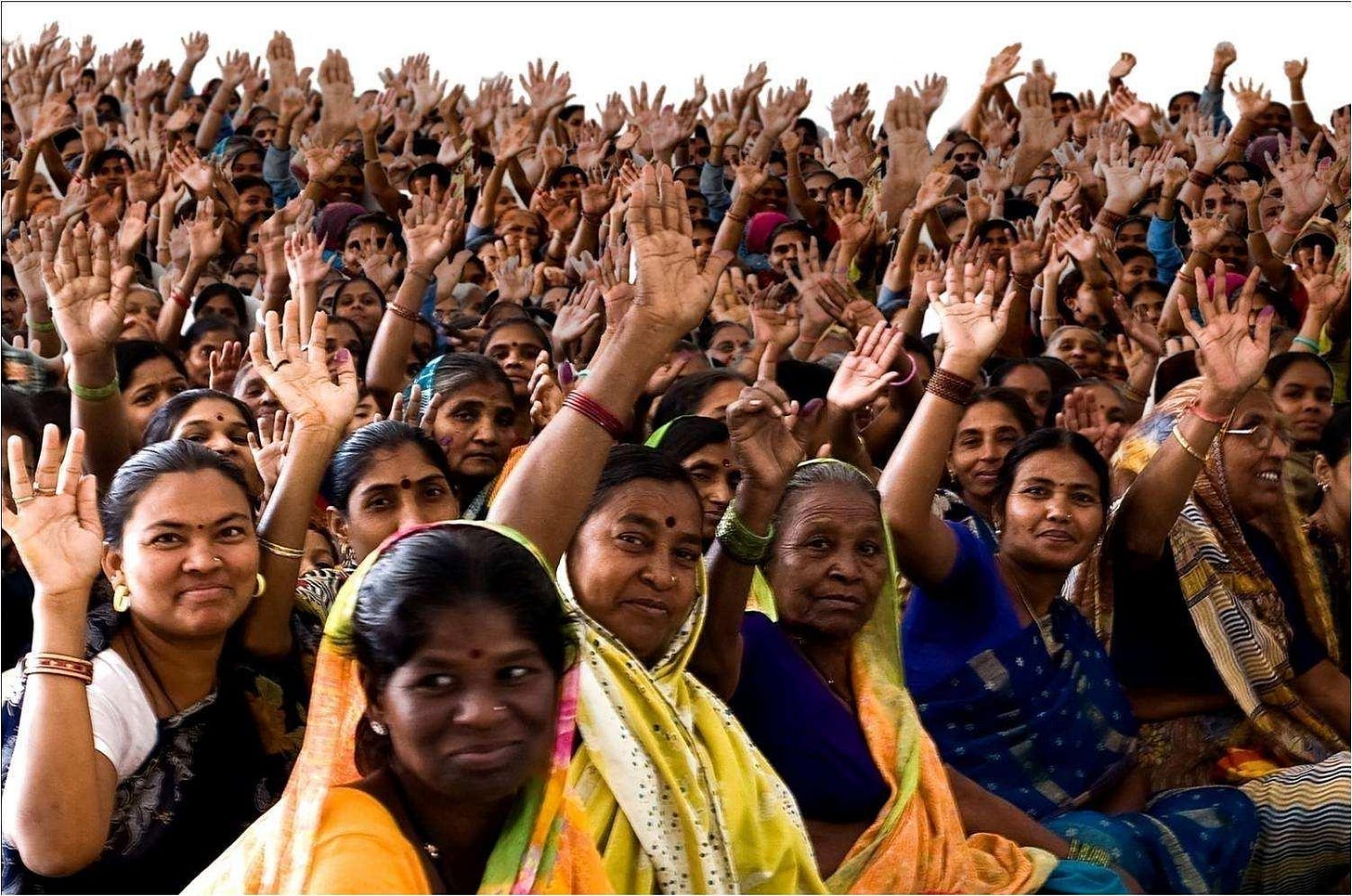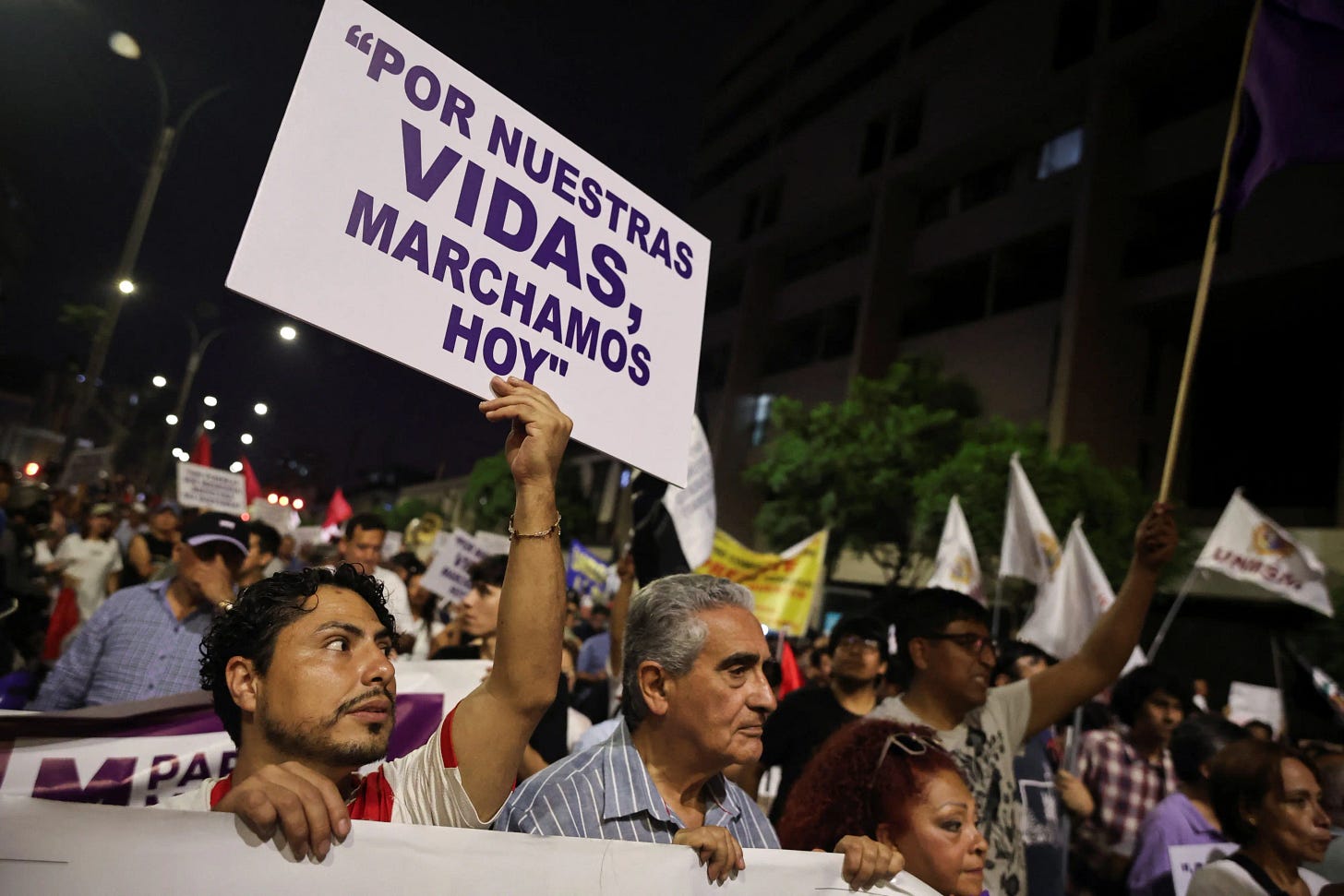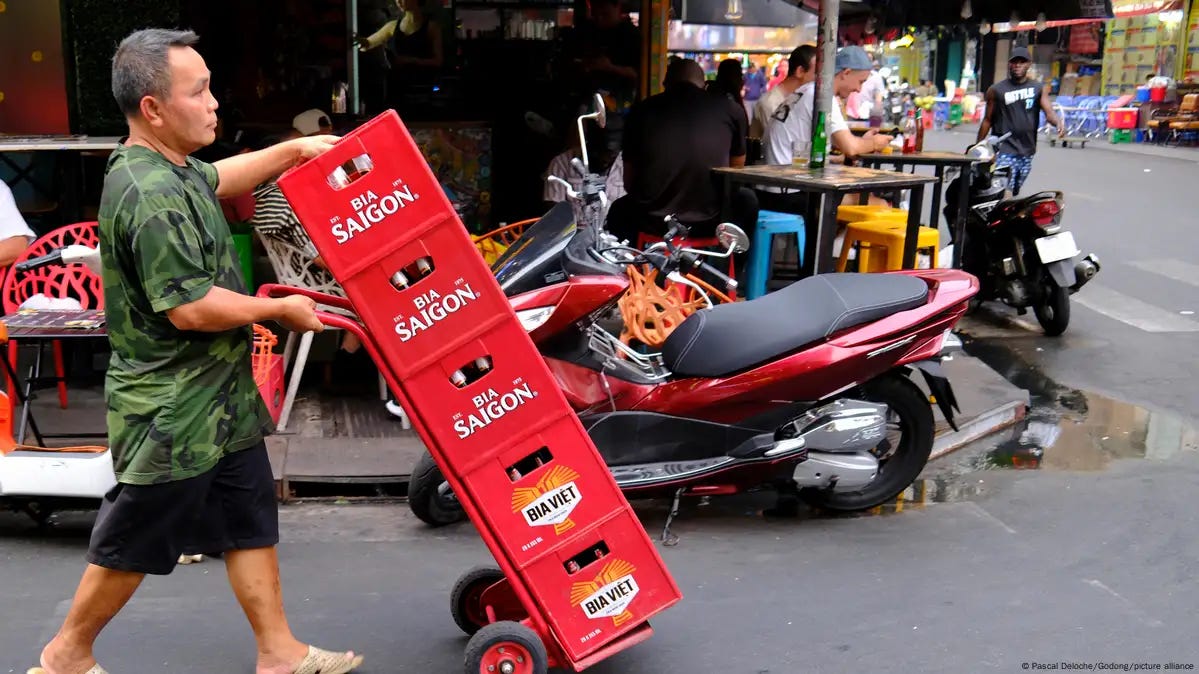Developmental Insights Edition 14
In discussion this week: The Repercussions of Female Political Participation
Developmental Insights is back this week to track the world’s progress. Think of the newsletter as a guided world tour, stopping at the most compelling and urgent stories worldwide. There is no hierarchy and no one story is more important than another. I’ll leave it to you, the reader, to decide which piece resonates the most based on your own personal experiences, professional interests or pure curiosity.
I’m also excited to share that the 'In Discussion' feature continues this week with my deep dive into female political participation - a timely and critical issue in global politics and affairs. But first, let's go to India’s informal sector, the African continent, Peru’s crackdown on organised crime, women in the UK and alcohol in Vietnam.
In this edition:
Women in India’s informal sector are fighting for better working conditions
In India, informal workers make up almost 90% of the country’s workforce, but despite being the backbone of the economy, they remain invisible and unheard. A 2018 International Labour Organisation (ILO) report found that around 82% of the total number of working women in India are concentrated in this sector, working in fields such as domestic and home based work, construction, street vending and factories, etc. As they lack formal recognition, these workers are excluded from government support such as health insurance and maternity benefits. They are also less likely to be able to borrow money from banks, forcing them to turn to exploitative moneylenders. Climate change also exacerbates their plight with floods and extreme heat disrupting their livelihoods.
However, over the past 50 years, women in India have been teaming up to improve their working conditions. In 1972, the Self- Employed Women’s Association (SEWA) was founded by activist Ela Bhatt; it has now become a movement with over 3.2 million women members across 18 states in India. The issues addressed by the organisation are diverse, looking at topics such as growing employment opportunities, earnings and asset ownership for women, and improving access to services like food, healthcare, childcare and sanitation.
4 rich Africans are reportedly wealthier than half the continent
A report published by Oxfam has found how just 4 of the richest Africans are wealthier than half the continent. Stating that growing inequality in Africa is hindering democracy, the NGO said how these individuals hold $48.9 billion. Nigerian billionaire Aliko Dangote is the richest man on the continent, with an estimated wealth of $23.3 billion. South Africans Johann Rupert and Nicky Oppenheimer, along with Egyptian Nassef Sawiris make up the other three richest individuals in Africa.
Other findings from the report are:
Over the past five years, African billionaires have increased their wealth by 56%, while the four richest African billionaires have increased theirs by 88%.
Nearly half of the 50 most unequal countries in the world are in Africa.
Since 2020, the average income of the richest 1% in Africa has increased five times faster than that of the poorest 50%
In Africa, men own three times more wealth than women - this is the highest gender wealth gap of all world regions.
Equal Bulletins, a newsletter bringing in insights about world inequalities, wrote an in-depth piece about the report. Click here if you’re interested to read it.
Congress in Peru undermines the fight against organised crime
Recent legislative actions and decisions by the Congress in Peru have undermined efforts to investigate and prosecute criminal networks. It has also decreased the autonomy of key public institutions and rolled back environmental protections. The administration of President Dina Boluarte has relied heavily on declaring ‘states of emergency’ - which suspend constitutional rights - as its primary tool to fight crime. This has also left millions of Peruvians more exposed to the threats of organised crime.
Unfortunately, the security situation of the South American country has worsened over the years. The yearly number of homicides rose by almost 137% between 2018 and 2024. Over half of the homicides in 2024 were committed by contract killers (those that are hired to kill). Furthermore, extortion complaints (especially those affecting urban areas and cargo transport) peaked in 2023, remained high in 2024 and hit a new record in 2025. The actions of the Congress has meant that prosecutors are unable to help those in these cases, limiting their ability to obtain evidence and investigative leads from defendants willing to cooperate.
The UK drops to 41st in the global women’s health index
Slipping from 30th position just 2 years ago, British women now rank 41st out of 142 countries in the Hologic Global Women’s Health Index. This index, published annually, provides comprehensive data from women’s perspectives on their health and wellbeing. This decline reinforces recent concerns about women’s emotional wellbeing, chronic pain and gaps in preventative care for women. Figures from the survey (over 78,000 women) illustrate how domestic screening rates for high blood pressure, diabetes and cancer have worsened.
Unfortunately, health disparities have deepened in the UK. The poorest 10% of women face serious illness up to a decade earlier than their wealthier counterparts. Furthermore, chronic illnesses such as heart disease, diabetes and mental ill health are increasingly prevalent in poorer communities. When looking at the rest of the report, the top five countries are Taiwan, Kuwait, Austria, Switzerland and Finland respectively, while Liberia, Sierra Leone, Chad, the Democratic Republic of the Congo and Afghanistan rank at the bottom.
Vietnam’s cracking down on alcohol
Last month, Vietnam’s National Assembly approved plans to raise taxes on alcohol from 65% to 90% by 2031, a major step in the government’s efforts to halt harmful consumption habits. This halt comes amidst rising concerns within the ruling Community Party about excessive drinking in the country - authorities are still struggling to enforce a zero-tolerance policy on drink driving that was brought in in 2019. The move is facing opposition from the alcohol industry however.
The Special Consumption Tax (SCT) on alcohol will rise from the current 65% to 70% by 2027 and then to 90% by 2031. Alcohol consumption rates have also steadily increased from 2.9 litres per person in 2005 to 7.9 litres in 2019 - alcohol is also the second highest cause of death in Vietnam.
In Discussion
The Repercussions of Female Political Participation
In November last year, Namibia elected its first female president. Netumbo Nandi-Ndaitwah was joined by Lucia Witbooi as vice president and Saara Kuugongelwa-Amadhila as the first woman to lead Parliament. Eight other posts were given to women, proving to not only be a historical moment for the Southern African nation but for the whole world. Although this contributes as an advantage to women’s equality and development, they face several barriers - this article will explore them before concluding with some recommendations.
For the full article, click on this link!
Thanks for reading edition 14 of Developmental Insights - I hope you enjoyed it and found it informative! Please subscribe to the newsletter if you would like to continue receiving it straight to your inbox every other Friday!
I am always open to suggestions or feedback so please send anything to developmentalinsights@gmail.com or, simply add a comment below!
A small call to action: I’m nearly at 100 subscribers!
If you haven’t already and Developmental Insights resonates with you, please subscribe! If you have subscribed, please share in your networks!
I look forward to connecting with you further in future editions!
Best,
Harkiran







Interesting read, thanks!